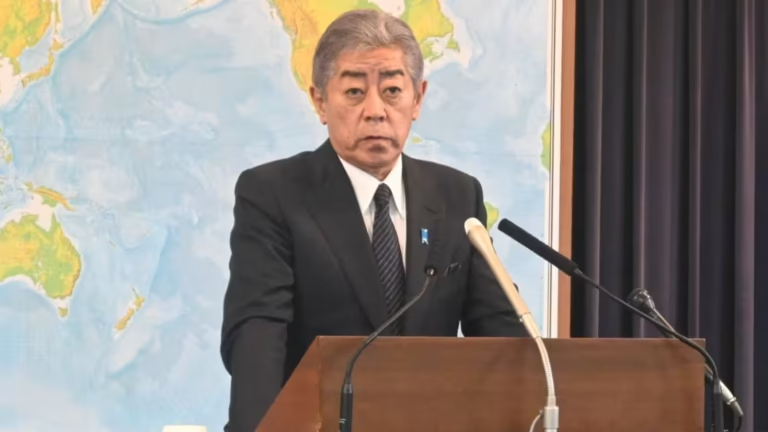Japan has called on Myanmar to quickly return to democratic rule following the end of the state of emergency that was imposed after the military seized power in 2021. Japanese Foreign Minister Takeshi Iwaya made the statement during a press briefing on Friday, urging Myanmar’s military leaders to act without delay.
The country has remained under military control for over four years, after the army removed the elected government and arrested its leaders. With the emergency measures now lifted, Myanmar’s constitution requires that a general election be held within six months. However, international concern is growing that these elections may not accurately reflect the people’s will unless democratic reforms are implemented first.
Speaking to reporters, Iwaya said Japan strongly urges Myanmar’s military to restore the democratic political system as soon as possible. He warned that elections held too quickly and without genuine political progress could lead to unrest. Japan is seriously concerned that if general elections are held without steps toward political progress, it could provoke a strong backlash from the people of Myanmar, he said.
The situation in Myanmar has remained tense since the 2021 coup. Large-scale protests were met with deadly crackdowns, and the military has faced armed resistance in several regions. Civilians continue to suffer due to ongoing conflict, displacement, and shortages of essential goods. The violence has drawn widespread international criticism.
Iwaya also stressed the need to stop the violence immediately. He called on Myanmar’s leaders to allow peaceful dialogue and protect human rights. He urged the military to release all political detainees, including former democratic leader Aung San Suu Kyi. Suu Kyi, a Nobel Peace Prize winner, was detained during the military takeover and later sentenced on multiple charges. Human rights groups and democratic countries view the charges as politically motivated.
Japan has taken a more moderate approach toward Myanmar than many Western countries. While it has condemned the coup and called for democratic restoration, it has avoided heavy sanctions. Instead, Japan has tried to keep lines of communication open, hoping that engagement might help ease the crisis. Tokyo has continued to provide humanitarian assistance to the people of Myanmar and encouraged peaceful solutions through regional cooperation.
Iwaya’s latest comments reflect Japan’s growing concern that upcoming elections might only serve to strengthen the military’s control unless real political change occurs. Observers fear that the military could use the elections to claim legitimacy while keeping power in its own hands.
The international community is watching Myanmar closely. The United Nations and several countries have called for inclusive political dialogue and a return to democratic norms. Many believe that releasing political prisoners and ending violence are necessary steps before fair elections can take place.
Japan’s call adds to the international pressure on Myanmar’s generals. It also shows Japan’s continued role in promoting peace and democracy in the region. While Japan does not support military rule, it believes that isolating Myanmar could make things worse. That is why it continues to engage while urging reforms.
As Myanmar moves closer to potential elections, questions remain about how free and fair the process will be. Without changes to the current system, many fear the vote could be a formality that does not lead to real change. Japan’s message is clear: elections without reforms are not enough. Only a return to democracy, respect for human rights, and the release of political prisoners can help rebuild Myanmar’s future.
The next few months will be critical. Myanmar’s leaders face a choice between deepening crisis or taking real steps toward peace. The world, including Japan, will be watching closely.







